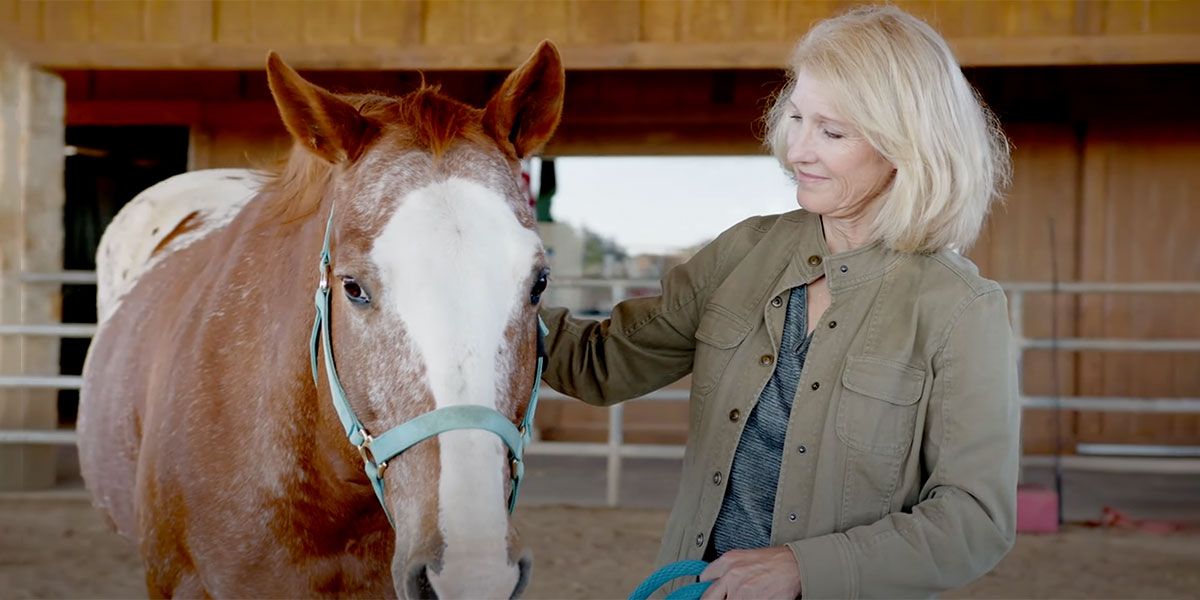Meet Baylor’s expert on equine-assisted therapies for autistic children

When Dr. Beth Lanning (BSED ’89, MSED ’91) first came to Baylor as a student, she wanted to become a large animal veterinarian. It seemed a natural fit for someone who grew up training and showing horses, but after some time in that course of study, she realized she didn’t want to be a veterinarian. So, she switched to engineering, then pre-health. It was a circuitous path that led her to her current role in Baylor’s Department of Public Health, where she combines aspects of all of these streams in her work.
Today, Lanning serves as professor and associate chair of public health, and the two-time Baylor grad has built a reputation as a leading researcher into the impact of human-animal interventions for children with autism, adults with PTSD, and more.
Most notably, Lanning has continued to work with horses through her research. Equine-assisted services have yielded positive behavioral improvements in children with autism and other developmental disabilities, but scientists have not yet uncovered why that is the case. Lanning has worked with Baylor engineering’s Dr. Brian Garner to better understand why and to make these therapies more accessible.
Garner developed a product called the Miracolt to mimic a horse’s gait and make equine-assisted therapy available to those without access to horses. Lanning partners with Garner in the work and received a grant from the State of Texas to study the device’s effectiveness, with the goal of discovering insights into the nature of equine-assisted therapy. These therapies have also been used with positive results by veterans with PTSD and others with mental health challenges.
For Lanning, who has an additional research focus on sexual violence prevention, there are more ties to the varied threads of her research than one might expect.
“With the animal-human interaction, I have done work and am still doing work with equine-assisted services, which are utilizing a horse in an intervention setting, especially helping veterans with PTSD and depression and helping with reintegration,” she says. “I’ve also worked with children with autism and equine-assisted services. We have one study that just finished with a facility dog as part of a drop-off center for kids who are sex trafficking victims. I partner with organizations that work with sex trafficking victims, so that’s where the other part of my work comes in.”
The thread that ties them all together is a desire to meet those with mental health challenges or developmental disabilities where they are and build access to therapies that could better meet their needs.
Sic ’em, Dr. Lanning!

